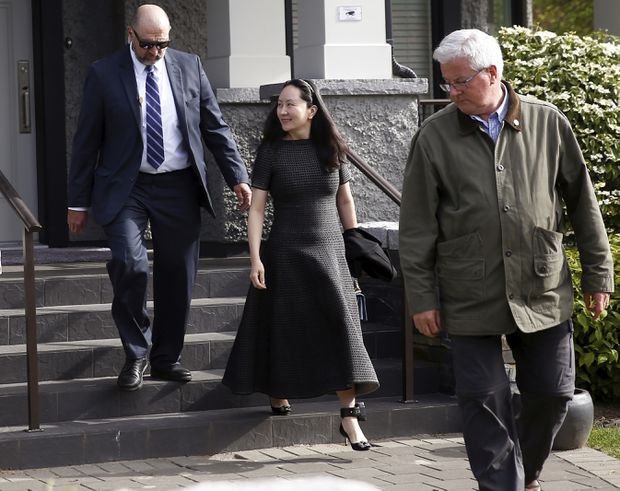Huawei Asks Canadian Court To Halt CFO Extradition To US

US extradition of Meng Wanzhou should be halted as Canada did not have sanctions against Iran at time of request
Lawyers working for Huawei Technologies and its detained CFO, Meng Wanzhou, have asked a Canadian court to immediately halt proceedings seeking to extradite her to the United States.
Meng Wanzhou was arrested by Canadian authorities at Vancouver airport in December 2018 for alleged sanction busting with Iran and misleading banks, charges which she denies.
But now a company spokesman Benjamin Howes told Reuters via an email that the company believes the extradition fails to meet the Canadian standard of double criminality.

Double criminality
This double criminality standard means the alleged conduct for which Meng was arrested in 2018 has to be illegal in both countries (i.e. the US and Canada) for her to be extradited.
Howes reportedly said Huawei is arguing that because Canada did not have sanctions against Iran at the time Canadian officials authorised her extradition process, double criminality cannot be met.
The application “doesn’t seek to challenge whether the facts behind the logic of this charge are true or not,” Howes reportedly said, noting that the company would challenge this during a sufficiency hearing to be held in September 2020.
Canada’s federal justice ministry was not immediately available for comment, Reuters reported.
But Reuters cited Vancouver-based extradition lawyer Gary Botting who is not involved in the case, as saying that Meng’s lawyers may have a sound argument, but it is premature.
“They’re jumping the gun a bit, because the whole notion of a full extradition hearing is to determine whether or not there is dual criminality. The judge is bound to say, ‘Hurry up and wait,” Botting said.
US extradition
Earlier this month the Canadian attorney genera filed affidavits that insisted information identifying Wanzhou’s electronic devices was not shared with the FBI.
The Canadian government is also currently being sued by Meng Wanzhou, and her lawsuit alleges that she was detained, searched and interrogated for three hours in violation of her constitutional rights.
Her civil lawsuit came after Canada decided (as expected) in March to grant the extradition of the daughter of the founder of Huawei, to the United States.
Meng Wanzhou has been charged in the United States with bank fraud and she is accused of misleading HSBC about Huawei’s business in Iran, which is under US sanctions.
Sanctions busting?
Essentially, the United States is accusing both Wanzhou and Huawei of conspiring to defraud HSBC and other banks by misrepresenting Huawei’s relationship with Skycom Tech Co Ltd, an alleged front company that operated in Iran.
Huawei has always said that Skycom was a local business partner, but the US believes it was an unofficial subsidiary used to conceal Huawei’s business in Iran.
Wanzhou is currently living in one of her two multimillion-pound homes in Vancouver on bail, and is obliged to wear an ankle monitor and pay for security guards.
Her extradition hearing is set to begin on 20 January 2020.
When Canada arrested Wanzhou, China immediately warned of ‘consequences’, and has also warned Canada there will be ‘repercussions’ if it decides to ban the use of 5G equipment from Huawei on security grounds like other Western nations.
China, it should be noted, also arrested two Canadian men, an entrepreneur (Michael Spavor) and a former diplomat (Michael Kovrig).
Meanwhile another Canadian, Robert Lloyd Schellenberg, who was jailed for drug smuggling, has also been sentenced to death.
Do you know all about security? Try our quiz!